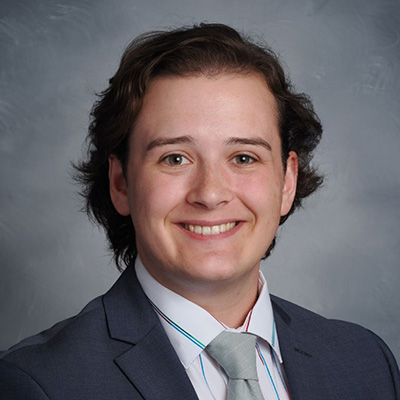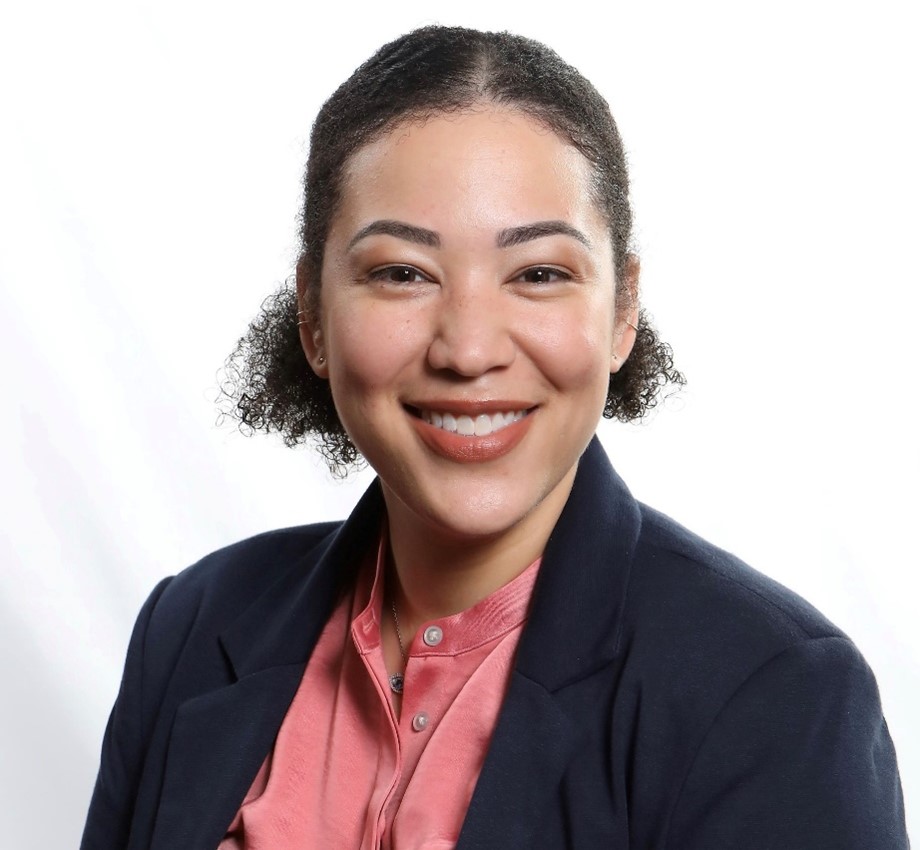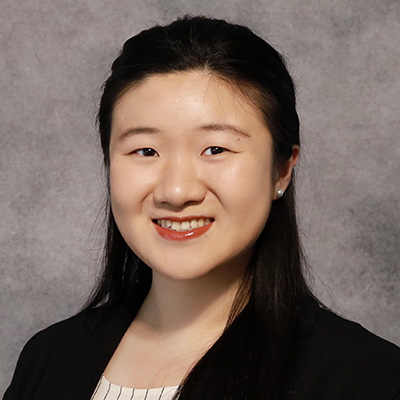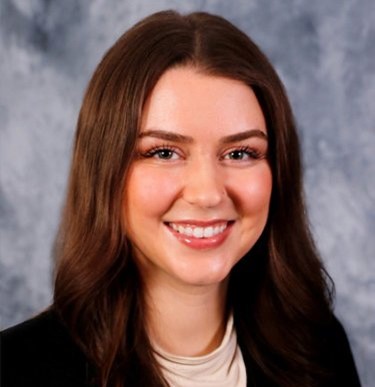‘Invaluable’ leadership opportunities are open to students, residents
June 26, 2025, David Mitchell — Twelve medical students and family medicine residents will be elected to national leadership roles by their peers during the student and resident congresses during FUTURE, which is scheduled for July 31-Aug. 2 in Kansas City, Missouri. In a separate process, dozens more will be appointed to serve in other student and resident leadership positions.
AAFP News recently spoke with four national student and resident leaders about their experiences.
Why would should students and residents run for a position at FUTURE or apply for one of the appointed leadership roles?
Aerial Petty, DO, resident member of the AAFP Board of Directors and Family Medicine CPV-GW Health Policy Research Fellow: My experiences with the AAFP have shaped me into who I am as a family physician just as much as my residency did. The first time I ran for a position at FUTURE, I was a mix of terrified and excited. I wanted to run for a position, but I didn't actually want to have to run for it. Putting myself out there in front of not only my peers, but established family physicians that I so strongly admired, was the most outside of my comfort zone that I had ever been during residency. I was proud of myself for that, and I think that AAFP leadership positions offer so much opportunity for personal growth.

Jiayu Kate Tian, MD, resident chair of FUTURE and third-year resident at the University of Vermont Medical Center: I encourage anyone curious about advocacy to run for a position at FUTURE or apply for an appointed role—regardless of prior policy experience. Medicine is inherently political, and as trainees, we have both the opportunity and responsibility to shape the future of our practice and our communities. That work doesn’t end at the exam room door—it continues through organized advocacy, and FUTURE is a powerful place to start.
Mikala Cessac, MD, student member of the AAFP Board of directors and recent graduate of the University of Missouri-Columbia School of Medicine who matched at the Family and Social Medicine Residency at Montefiore Medical Center: I would encourage any students interested in family medicine to run for a position at FUTURE or apply for one of the appointed roles because of the amazing opportunities that you can experience through the AAFP. In addition to the networking and professional development opportunities, you will find yourself surrounded by incredible family physicians who will inspire you to lead, learn and care better.
Austen Ott, MD, student chair or FUTURE and recent graduate of the University of Minnesota Medical School who matched with the Contra Costa Family Medicine Residency Program: Participating in Academy leadership is a great opportunity to better understand where you see yourself within family medicine. In leadership, you will have the opportunity to develop your priorities in family medicine by networking and collaborating with students, residents and faculty physicians across the country. Also, running for a position at FUTURE is preparation for public speaking and running for elected positions in your future career. Most importantly, it's fun!
What would you say to med students or residents who experience imposter syndrome about leadership opportunities?
Ott: I think all of us struggle with imposter syndrome at some level, but often those from historically underrepresented backgrounds may experience it more. For those students or residents who may be feeling this isn't the place for them, we need your voice even more. All of us started our leadership journey with the AAFP by putting ourselves out there, even if we were nervous. Take a deep breath and recognize that you are capable, have a unique perspective to provide, and you deserve to be here just as much as anyone else.
Cessac: I can definitely relate to having imposter syndrome. I had only been involved with the AAFP for a year before I ran for my current position on the Board of Directors. I also remember being extremely nervous to give a speech in front of my peers at FUTURE. However, if you have a love for family medicine and are willing to challenge yourself by being vulnerable, then you should go for it. The reward for just trying something new will be worth it, and you never know what new opportunities could come out of it.

Austen Ott, MD
Petty: One of my AAFP mentors once told me that if I never stepped out of my comfort zone, I would never grow out of it. That truth hit me incredibly hard. At some point in your leadership journey, you'll have the opportunity to say yes to something that scares you. You deserve to say yes. When my mentor gave me this advice, he was encouraging me to run for a national AAFP position. It took six months of consistent encouragement from him and six months of me consistently saying no before I finally felt brave enough to say yes. I ran for resident delegate to the Congress of Delegates. Now, I'm the resident member to the AAFP Board, and my AAFP leadership experience has been one of the greatest honors of my fledgling career as a family physician.
Tian: Most of us—including myself—began our AAFP leadership journeys with little to no experience in advocacy. But at FUTURE, you’re surrounded by inspiring family physician leaders who genuinely want to support your growth. The student and resident congresses are the perfect environment to try something new: write your first resolution, give your first testimony, or run in your first election. You’re not alone—there’s a community ready to lift you up.
Why is this experience worth the time commitment for students are residents who are already so busy?
Petty: The mentorship, sponsorship and sense of connection to something bigger than myself has been invaluable. People are nice, but family medicine people are “family medicine nice.” Everyone I meet cares so much about both my happiness and my success. The people I have met and spend time with through my leadership role are generous with their own time, experience and networks. I've been granted this rare and special opportunity to learn from people who have dedicated their extensive careers to doing the same kind of work that I want to do.
Tian: The work I’ve done with the AAFP has been one of the most inspiring parts of my training. Many long-time physician advocates have shared that their engagement in advocacy helps prevent burnout—and I’ve experienced that myself. Advocacy gives us a sense of agency. Instead of feeling stuck in a broken system, we’re empowered to change it. That’s deeply fulfilling and worth every minute, even during a busy residency.

Aerial Petty, DO
Cessac: My position on the AAFP Board of Directors has given me invaluable experience with developing my leadership skills in both formal and informal ways. I have had the opportunity to actively participate in the operation of a member-serving organization working to bring to life a strategic vision. Additionally, I have been able to learn from leaders with decades of experience on how to thoughtfully advocate in spaces where policy decisions are made. I will take these skills and experiences forward with me into residency and into the communities I hope to serve.
Ott: For me, the commitment and time AAFP leadership requires was worth it to develop a framework for me to see myself in a career in family medicine. In working with the Commission on Federal and State Policy, and now serving as student chair of FUTURE, I have been exposed to many of the different ways family physicians are serving their patients and their communities across the country. I learned about policy-making, community organizing, teaching and different forms of patient care being performed by physicians in small, specialized clinics and large, underserved rural areas. I have had the opportunity to network with residents and physicians receiving the training and doing the work that I want to do. When you see someone like you doing what you want to do, you can picture yourself doing it, too, and learn how to get there. This has been invaluable.
Did your leadership experience help you stand out in the Match or open doors for fellowships, employment or other leadership roles?
Ott: My time with the AAFP was a highlight of my residency application. Having longitudinal leadership experience on my CV made it easy to demonstrate a commitment to family medicine before I was even offered an interview. During interviews, I was eager to share how my AAFP experiences helped prepare me to be a great resident. Many interviewers are excited to see when an applicant has worked with the AAFP, and you may even end up speaking to someone who also is an Academy leader.
Cessac: I talked about my leadership experience at the AAFP in almost all my residency interviews. Because the AAFP is at the forefront of improving family medicine, your participation at any level is one part of making the field better for you and your future patients. It was asked about frequently, and it gave me an opportunity to talk about my love for family medicine and how I believe it could be improved, which ultimately helped me find a residency program that shared my values.

Jiayu Kate Tian, MD
Petty: My experience on the Board has complimented my fellowship year so well. As a family medicine health policy research fellow with the ABFM and a Board member at the same time, I often feel like what could have been two separate worlds in any other year is really one. I'm currently looking for a job after I graduate, and almost every single application I've sent out has been thanks to the connections I've made through my fellowship and Board position.
Tian: What I’ve learned through AAFP leadership has shaped the way I approach medicine, and I’ve been able to share that experience with colleagues who are just getting started. My residency program has supported my involvement, and now I’m helping to build an advocacy curriculum to pass those tools forward. If I can do this starting from zero, anyone can.
What kind of networking or connections with mentors did you make on AAFP commissions?
Ott: Serving on the Commission for Federal and State Policy (CFSP) was a great opportunity to connect with policy-minded physicians across the country. Commissions are composed of medical students, residents, new attending physicians and well-experienced Academy members. This mix of knowledge and exposure to the work the Commission is doing makes it easy for student members to connect with more experienced members. Through these conversations, I learned about residency programs that interested me, fellowship opportunities to consider further down the road, and even how to incorporate policy-making into my career as a physician—all because I saw my fellow commission members doing these things. I still keep in contact with several physicians from my time on the CFSP.
Tian: Serving on the Commission on Quality and Practice and the Commission on Education connected me with some of the most impactful leaders in family medicine advocacy. These experiences have offered not only mentorship but also a clearer vision of what my future career could look like. They’ve helped me see how advocacy can be a lifelong commitment, integrated into every stage of our professional journeys.

Mikala Cessac, MD
Cessac: Through my time both on the Commission for Membership and Member Services and the Board, I have made connections with family physicians at all stages of their educations and careers. I have been able to meet friends and colleagues from all over the country who are constantly redefining what family medicine looks like. It has allowed me to push the boundaries of what my career could look like and how I can take care of patients in new and innovative ways.
Petty: I have had the opportunity to learn from family physicians in every stage of a family medicine career. I've also been exposed to the many types of family medicine careers available, some of which I may have never known about if I hadn't met our commission members. Academic family medicine, private practice, health policy, local government, state and federal government, service, international, urban, rural, FQHC, military... family medicine is everywhere, and it brings me so much joy to see it.